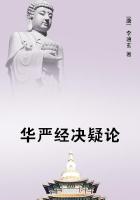Their cause seemed lost. At the request of Turkey, an Egyptian army was landed in the Morea and soon the Turkish flag was again flying from the Acropolis, the ancient stronghold of Athens. The Egyptian army then pacified the country "a la Turque," and Metternich followed the proceedings with quiet interest, awaiting the day when this "attempt against the peace of Europe" should be a thing of the past.
Once more it was England which upset his plans. The greatest glory of England does not lie in her vast colonial possessions, in her wealth or her navy, but in the quiet heroism and independence of her average citizen. The Englishman obeys the law because he knows that respect for the rights of others marks the difference between a dog-kennel and civilised society. But he does not recognize the right of others to interfere with his ******* of thought. If his country does something which he believes to be wrong, he gets up and says so and the government which he attacks will respect him and will give him full protection against the mob which to-day, as in the time of Socrates, often loves to destroy those who surpass it in courage or intelligence. There never has been a good cause, however unpopular or however distant, which has not counted a number of Englishmen among its staunchest adherents.
The mass of the English people are not different from those in other lands. They stick to the business at hand and have no time for unpractical "sporting ventures." But they rather admire their eccentric neighbour who drops everything to go and fight for some obscure people in Asia or Africa and when he has been killed they give him a fine public funeral and hold him up to their children as an example of valor and chivalry.
Even the police spies of the Holy Alliance were powerless against this national characteristic. In the year 1824, Lord Byron, a rich young Englishman who wrote the poetry over which all Europe wept, hoisted the sails of his yacht and started south to help the Greeks. Three months later the news spread through Europe that their hero lay dead in Missolonghi, the last of the Greek strongholds. His lonely death caught the imagination of the people. In all countries, societies were formed to help the Greeks. Lafayette, the grand old man of the American revolution, pleaded their cause in France.
The king of Bavaria sent hundreds of his officers. Money and supplies poured in upon the starving men of Missolonghi.
In England, George Canning, who had defeated the plans of the Holy Alliance in South America, was now prime minis- ter. He saw his chance to checkmate Metternich for a second time. The English and Russian fleets were already in the Mediterranean. They were sent by governments which dared no longer suppress the popular enthusiasm for the cause of the Greek patriots. The French navy appeared because France, since the end of the Crusades, had assumed the role of the defender of the Christian faith in Mohammedan lands. On October 20 of the year 1827, the ships of the three nations attacked the Turkish fleet in the bay of Navarino and destroyed it.
Rarely has the news of a battle been received with such general rejoicing. The people of western Europe and Russia who enjoyed no ******* at home consoled themselves by fighting an imaginary war of liberty on behalf of the oppressed Greeks.
In the year 1829 they had their reward. Greece became an independent nation and the policy of reaction and stability suffered its second great defeat.
It would be absurd were I to try, in this short volume, to give you a detailed account of the struggle for national independence in all other countries. There are a large number of excellent books devoted to such subjects. I have described the struggle for the independence of Greece because it was the first successful attack upon the bulwark of reaction which the Congress of Vienna had erected to "maintain the stability of Europe."
That mighty fortress of suppression still held out and Metternich continued to be in command. But the end was near.
In France the Bourbons had established an almost unbearable rule of police officials who were trying to undo the work of the French revolution, with an absolute disregard of the regulations and laws of civilised warfare. When Louis XVIII died in the year 1824, the people had enjoyed nine years of "peace" which had proved even more unhappy than the ten years of war of the Empire. Louis was succeeded by his brother, Charles X.
Louis had belonged to that famous Bourbon family which, although it never learned anything, never forgot anything.
The recollection of that morning in the town of Hamm, when news had reached him of the decapitation of his brother, remained a constant warning of what might happen to those kings who did not read the signs of the times aright. Charles, on the other hand, who had managed to run up private debts of fifty million francs before he was twenty years of age, knew nothing, remembered nothing and firmly intended to learn nothing. As soon as he had succeeded his brother, he established a government "by priests, through priests and for priests," and while the Duke of Wellington, who made this remark, cannot be called a violent liberal, Charles ruled in such a way that he disgusted even that trusted friend of law and order. When he tried to suppress the newspapers which dared to criticise his government, and dismissed the Parliament because it supported the Press, his days were numbered.
On the night of the 27th of July of the year 1830, a revolution took place in Paris. On the 30th of the same month, the king fled to the coast and set sail for England. In this way the "famous farce of fifteen years" came to an end and the Bourbons were at last removed from the throne of France.
They were too hopelessly incompetent. France then might have returned to a Republican form of government, but such a step would not have been tolerated by Metternich.















